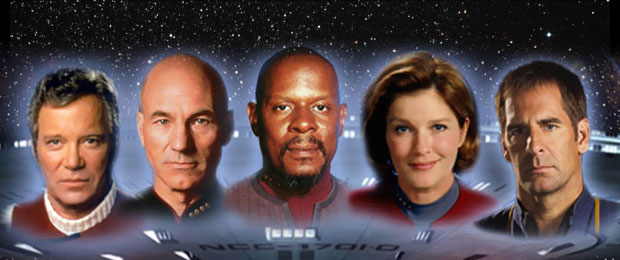“Star Trek” will return to television in 2017!
From the original 1966 “Star Trek” television series to the reimagined movies being released just last year, “Star Trek” has captivated its audiences around the world for nearly fifty years. From families with young children to hardcore science fiction fanatics, “Star Trek” has been an essential part of television history and fan culture since its creation. The franchise spans five television series, thirteen, (soon to be fourteen) movies, over two thousand comic books and novels, several official magazines, an (arguably terrible) animated cartoon, its own spoof movie, “Galaxy Quest,” dozens of video games, and website archives full of fan-created artwork and writings dating back to when fanfiction was still a product of typewriters. All these years later, “Star Trek” still has an immense impact on new generations that immerse themselves in their favorite television shows.
This being said, Trekkies were more than excited to hear this past November, an announcement was made that a new series was coming to the small screen in January of 2017. CBS Corporation President and Ceo Les Moonves stated, “[The new show is a] world-class effort that will make all “Star Trek” fans proud.” No details have been released regarding the plot, but fans have taken it upon themselves to imagine what it should be like. One thing remains constant among Trekkies’ hopes however: keeping the ideals of “Star Trek” and the new series embracing them. This includes promoting complete acceptance of differences among race, gender, and culture, and bringing important social issues to light that are relevant in our modern society.
Each series had numerous main characters and plots to contribute towards bringing people to accept differences within humanity. The original “Star Trek” series in the 1960’s had a female African-American communications officer, a Russian navigator, and a Japanese helmsman; all characters which were controversial socially. “Star Trek: The Next Generation” had a blind man as the Chief Engineer and “Star Trek: Deep Space Nine” featured the first African-American Captain, and had a bisexual character in the main ensemble, and “Star Trek: Voyager” featured the first female captain of a starship in the franchise.
Topics covered by “Star Trek” over the years have included racism, sexism in both misogynistic and misandric cultures, LGBT prejudice, the AIDS crisis, the Vietnam War, the mortality associated with suicide and euthanasia, the ethics of contraception in the 1960’s, mental illness, characters living with physical disabilities and mental illness, and much more.
Each series had been racially diverse and pioneering gender-wise in order to portray a future where humanity has overcome its issues and embraces exploration and learning of other cultures and ways of life that seem, well, alien to us. “Star Trek” has rarely stopped to contemplate whether an issue was too controversial to try to put on the air.
With the highest of expectations from both casual viewers to mega-fans, the production team is currently being assembled with the best in the business. Producers Alex Kurtzman and Heather Kadin are known for their work on the hit TV shows “Scorpion” and “Limitless.” Kurtzman also served as a co-writer for the 2009 and 2013 “Star Trek” movies.
Star Trek alumni Bryan Fuller was also added to the creative team as showrunner, much to the delight of the fans. Fuller has worked on “Star Trek: Deep Space Nine” and “Star Trek: Voyager” years ago and is dedicated to the franchise. Kurtzman spoke highly of Fuller, saying to Studio City, “Bringing ‘Star Trek’ back to television means returning it to its roots, and for years those roots flourished under Bryan’s devoted care. His encyclopedic knowledge of Trek canon is surpassed only by his love for Gene Roddenberry’s optimistic future, a vision that continues to guide us as we explore strange new worlds.”
The most recent addition to the creative team was Rod Roddenberry, the son of Gene Roddenberry, the late creator of “Star Trek”. As the current president of Roddenberry Entertainment, Rod Roddenberry is passionate about bringing “Star Trek” back to television with a mission in mind. He says, “Moral dilemmas, human issues, complex characters and a genuine sense of optimism: These are the cornerstones of “Star Trek” and are what have made it such an influential and beloved franchise for the last 50 years […] It’s a genuine honor to be joining a team of imaginative and incredibly capable individuals whose endeavor it is to uphold the tenets of Star Trek’s legacy while bringing it to audiences in a new era and on a contemporary platform.”
Whatever the new show will bring, Trekkers and casual viewers alike can hope that it will delight its audiences on television once again in 2017.


